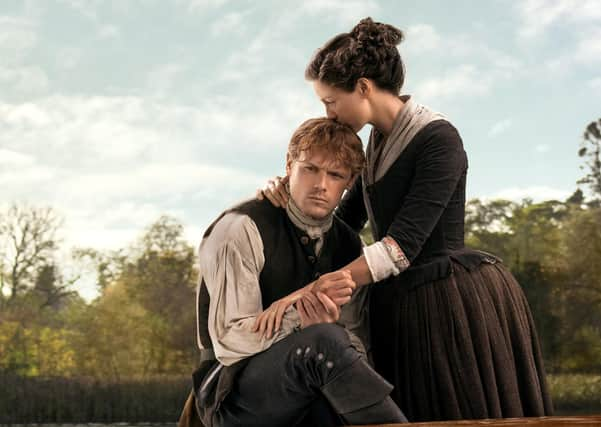Why it’s back to the future for Scottish film industry – Brian Ferguson


I know I’m not the only one to have used the lockdown period to attempt a clear-out or two. The sheer volume of posters, flyers and programmes I hoarded in the years after leaving university in Edinburgh in 1994 is testament to how much of a golden era it was for Scottish and UK culture.
The massively-selling albums of the era released by bands like Blur, Oasis, Pulp, Radiohead and the Manic Street Preachers – all of whom appeared at Scotland’s new music festival T in the Park – are still widely revered a quarter of a century on. In cinemas, Four Weddings and a Funeral seemed to usher in a new boom in British cinema when it came out in 1994.
Advertisement
Hide AdAdvertisement
Hide AdWhile the “Britpop” bands that dominated album sales were almost universally English, Scotland was able to boast a string of heavweight cinema hits with two contemporary tales set in Edinburgh, Shallow Grave and Trainspotting, heralding the arrival of director Danny Boyle and actor Ewan McGregor, and two historical epics, Braveheart and Rob Roy, filling the hearts and minds of many Scots. For a couple of years it felt like the eyes of the cinematic world were on Scotland. Trainspotting may have won more approval from the critics, but it was Australian star Mel Gibson’s memorable depiction of William Wallace which seemed to have more mass appeal, both in Scotland and overseas. Arguments have long raged about the political influence of Braveheart – particularly to what extent it fuelled interest in political change in Scotland. Within four years of its release, a Scottish Parliament was sitting in Edinburgh and the SNP took control at Holyrood less than a decade later. But by the time of the independence campaign in 2014 there was a clear move away from the kilted warrior image by the national football team’s Tartan Army.
As the next generation of footballers failed to live up to expectations, Scottish cinema fell into something of a lull. It would be wrong to say Scotland lost its way completely over the next decade or so. Filmmakers like Lynne Ramsay, David Mackenzie and Peter Mullan undoubtedly made their mark, wowing audiences, critics and prize juries at festivals, but none of their films reached the dizzy heights of their predecessors. A decade ago it felt as if the industry was in the doldrums, with the scrapping of a dedicated film funding agency and the failure to build a permanent studio beginning to haunt the next generation of directors and producers.
The Scottish screen sector has gradually clawed its way back into the game, thanks to crowd-pleasers like the big-screen adaptation of Proclaimers musical Sunshine on Leith, James McAvoy’s star turn as a corrupt detective in Filth, the debut of director Jon S Baird, Under the Skin, the chilling drama which saw Scarlett Johansson play a mysterious alien luring Scottish men to their deaths, and zombie drama World War Z, which famously brought Brad Pitt to Glasgow city centre.
But oddly enough Scottish history can take once again take credit for fuelling an unmistakable revival in Scottish cinema and TV drama. Few Scots had heard of American author Diana Gabaldon’s Outlander books when a TV adaptation was commissioned in 2013. Its worldwide audience and success undoubtedly paved the way for Netflix to throw its money behind David Mackenzie’s Robert the Bruce epic Outlaw King and bring in Hollywood star Chris Pine in the lead role – a fitting successor, along with Outlander star Sam Heughan’s portrayal of Jacobite warrior Jamie Fraser, to Gibson all these years later.
Comments
Want to join the conversation? Please or to comment on this article.